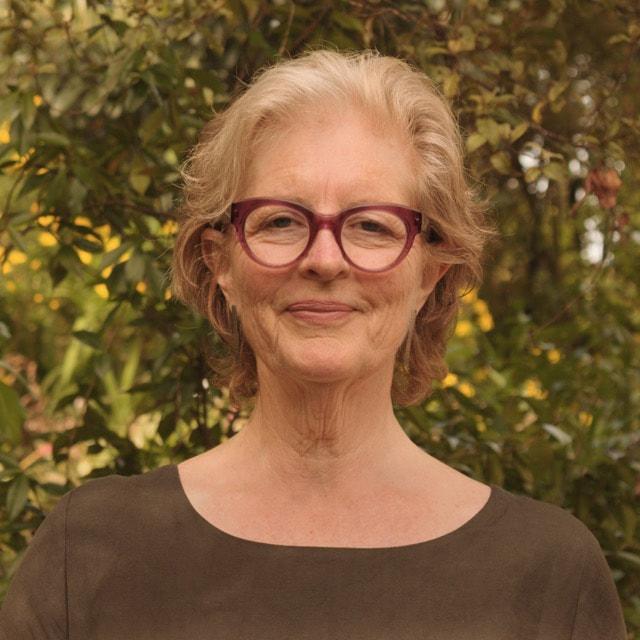Jennie Halliday

|
Status: Available to see new clients
Location: Mt. Maunganui & Tauranga Phone: 021 365 112 Click here to send Jennie an email Professional Body Registration: Full member ANZACATA (Australian, New Zealand and Asian Creative Arts Therapies Association) |
Qualifications
About
I was born in Aotearoa/New Zealand and have lived in the UK and the USA. Prior to moving back to Tauranga I worked as part of a multi-disciplinary team in a hospice setting for 6 years. There I found a passion for working alongside people struggling to live with dignity as the physical, emotional and spiritual aspects of their lives were challenged. My private practice has built on this experience, especially with traumatised clients.
As part of my private practice I have worked in high school settings and with agencies such as Victim Support, I Am Hope and Oranga Tamariki.
Helping people understand the power of the creative process when words are difficult to find is a passion of mine and I have contributed to two books on the clinical practice of arts therapy.
I enjoy working with all cultures and am committed to acknowledging Te Ao Māori when working with tangata whenua..
Experience
I am a clinical arts therapist working with adolescents and adults.
I can help with the emotional impact of:
ACC registered for sensitive claims
WINZ Disability for Counselling approved
Victim Support approved
Important things to know about arts therapy:
Do I have to be good at art? No! It is not an art class and I am not an art teacher. I have worked with men, women, and young people from all walks of life – academics to gang members – there is no “type” for this approach to emotional wellbeing.
What is it? Arts therapy is a clinical practice that sits alongside more traditional forms of emotional and psychological support, such as psychotherapy and counselling. Together we find a creative, symbolic way to access emotional difficulties and work with these non-verbally and with talk.
Why would I try it? A lot of difficulties or blocks are hard to talk about and often people don’t have the words to say what is troubling them. Over thinking things and getting trapped in circular thinking can get in the way of breakthrough and lead to being stalled or stuck. In art therapy a clinically trained practitioner works with you to engage in a creative process that can have unexpected results, unlocking old ways of thinking to create change.
- Masters of Arts in Arts Therapy, Clinical (Hons)
- Master of Fine Arts, Film
- Bachelor of Arts, Theatre
About
I was born in Aotearoa/New Zealand and have lived in the UK and the USA. Prior to moving back to Tauranga I worked as part of a multi-disciplinary team in a hospice setting for 6 years. There I found a passion for working alongside people struggling to live with dignity as the physical, emotional and spiritual aspects of their lives were challenged. My private practice has built on this experience, especially with traumatised clients.
As part of my private practice I have worked in high school settings and with agencies such as Victim Support, I Am Hope and Oranga Tamariki.
Helping people understand the power of the creative process when words are difficult to find is a passion of mine and I have contributed to two books on the clinical practice of arts therapy.
I enjoy working with all cultures and am committed to acknowledging Te Ao Māori when working with tangata whenua..
Experience
I am a clinical arts therapist working with adolescents and adults.
I can help with the emotional impact of:
- anxiety
- depression
- chronic health conditions
- Trauma, PTSD
- life limiting illness
- grief and loss
ACC registered for sensitive claims
WINZ Disability for Counselling approved
Victim Support approved
Important things to know about arts therapy:
Do I have to be good at art? No! It is not an art class and I am not an art teacher. I have worked with men, women, and young people from all walks of life – academics to gang members – there is no “type” for this approach to emotional wellbeing.
What is it? Arts therapy is a clinical practice that sits alongside more traditional forms of emotional and psychological support, such as psychotherapy and counselling. Together we find a creative, symbolic way to access emotional difficulties and work with these non-verbally and with talk.
Why would I try it? A lot of difficulties or blocks are hard to talk about and often people don’t have the words to say what is troubling them. Over thinking things and getting trapped in circular thinking can get in the way of breakthrough and lead to being stalled or stuck. In art therapy a clinically trained practitioner works with you to engage in a creative process that can have unexpected results, unlocking old ways of thinking to create change.
